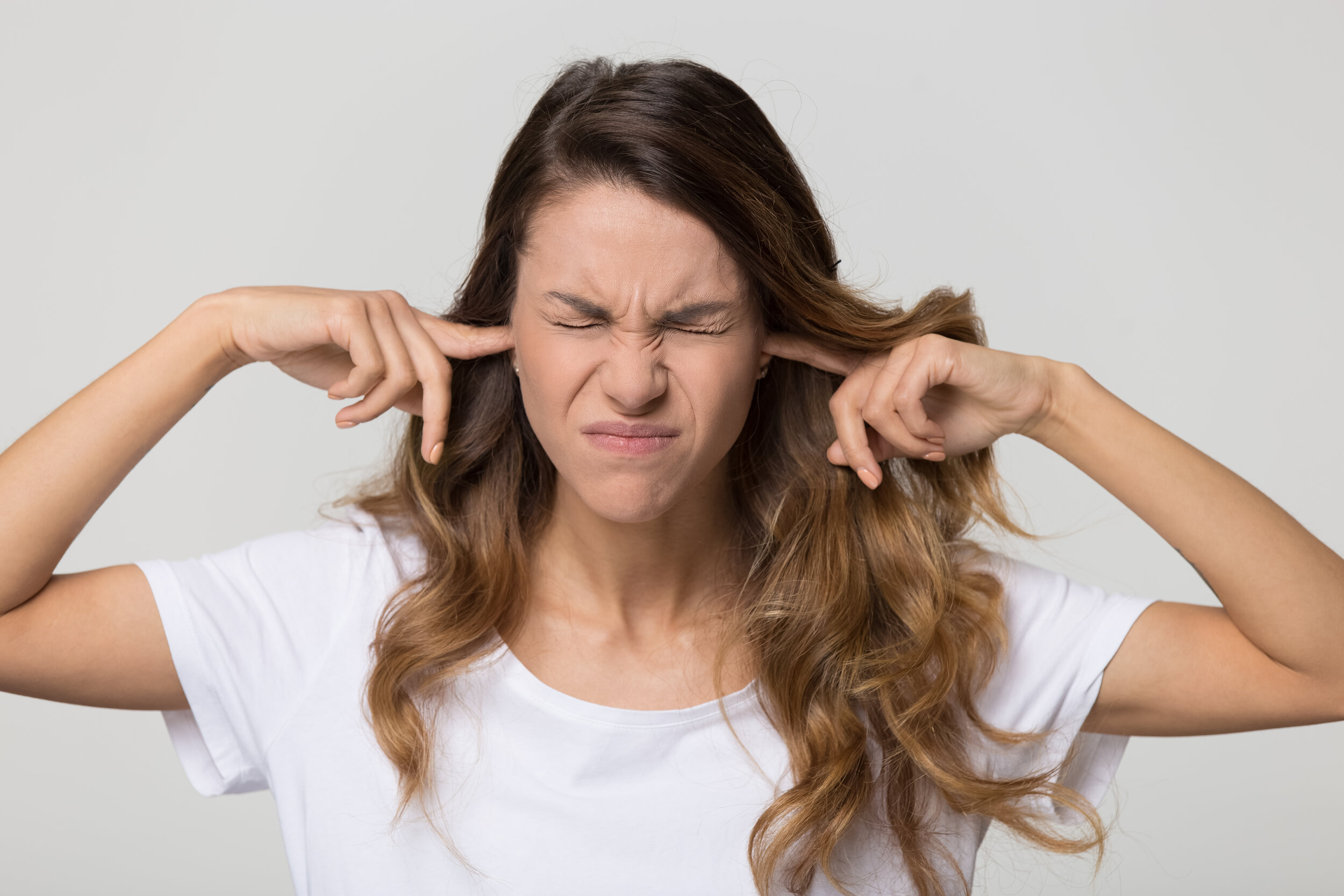Is it Possible to Be “a Little OCD?”
Photo by: Wayhome Studio / Sthutterstock.com
We get asked this question quite often at our OCD Clinic: “Is it possible that I have just a little bit of OCD?”
If you search the internet, you will see numerous blog posts and memes stating that it’s impossible to have a little bit of OCD. They also assert that this concept is demeaning to OCD sufferers.
But let’s put aside the semantics and the contemporary obsessional fear (pun intended) of inadvertently offending somebody and have a look at the real picture of OCD.
Here are the main diagnostic criteria for OCD:
1. Having either obsessions, or compulsions, or both. (I have to point out that I have never actually met a person with OCD who did not have compulsions. They may just be unaware of their mental compulsions, but the compulsions are there).
2. The obsessions or compulsions are time-consuming or cause distress or interfere with daily functioning.
As you can see, the main criteria include the question of whether obsessions or compulsions interfere with the person’s ability to function in their daily life.
Can you have “a little bit of OCD?”
In our practice, we see people suffering from a variety of OCD symptoms. Some symptoms are severe to the point that the person is unable to leave their house, and others are so mild that the person does not meet the full DSM-5 diagnostic criteria for this disorder.
In the cases of mild OCD, the intrusive thoughts are not time-consuming in a significant way (at least, at first glance). Or maybe, even though the person is troubled by the thoughts, they do not notably impair his or her daily functioning.
As most other psychological disorders, OCD can be defined as a continuum, ranging from barely noticeable symptoms on the one end to severe impairment on the other end. “A little OCD” in everyday language may just mean that the OCD is mild.
For most psychological disorders, everybody is somewhere on the spectrum of that disorder, whether it is on the lower or the higher end of the spectrum. OCD is not an exception.
Then what’s the deal with the internet campaign against the “I’m a little OCD” expression?
This stems from the stigma associated with OCD (a neat-freak and hand-washing disorder stigma), and the “I’m a little OCD” expression is said to trivialize the OCD experience. I beg to disagree. I think that ignoring the milder manifestations of OCD and presenting OCD as a dichotomous term leads to an even further decrease in awareness of what OCD really is, and it prevents people with milder and less visible symptoms from getting treatment.
The issue of people with OCD being misdiagnosed and not getting appropriate treatment is a serious one. It is very common to see individuals who have lived their whole lives suffering from OCD without having been aware that they have OCD. Those are often people who suffer primarily from intrusive thoughts (obsessions) without visible compulsions (so-called “Pure-O”).
Some misdiagnoses of OCD sufferers include anxiety disorders, depression, postpartum psychosis, pedophilia, delusional disorder, gender dysphoria, ADHD, and eating disorders. Instead of treating OCD, the therapists may try to treat another disorder. Or, they may address homosexuality (“helping” the client to “come out”), anger, or impulsivity.*
Sometimes, when a person with uncommon OCD symptoms that do not immediately look like OCD comes to see a doctor or a therapist, they may share tentatively that they are “a little OCD.” It may help their healthcare provider to consider the possibility of Obsessive-Compulsive Disorder. It may also lead to a referral to an OCD specialist for a thorough differential diagnosis.
We cannot expect people to use medical diagnostic criteria in their everyday language. People say that they are a little depressed, anxious, or panicky all the time. Yes, OCD is not an adjective. But this expression is an easy way to express being preoccupied with unwanted, intrusive thoughts.
What we should focus on is not the language, but the real stigma and lack of awareness associated with OCD. As long as OCD is presented in the media as a hand-washing and organizing disorder, this debilitating condition will remain misunderstood and will continue to be perceived as trivial.
There are numerous OCD Myths that are going around and contribute to the confusion. They include confusing the everyday use of the word “obsession” with obsession as an OCD symptom, stereotypes about compulsions, and other misconceptions.
Both the general public and primary health care providers need to be educated on various, less common manifestations of OCD
Should mild OCD be treated?
The treatment of OCD, or any other disorder for that matter, comes down to the question of to which extent it interferes in the person’s life. Some people do not feel that their thoughts and rituals affect their lives in a significant way. Many of us have some minor, OCD-like thoughts, superstitions, and habits. As long as we don’t feel that they prevent us from living full, rich, and meaningful lives, there’s no need to make any major changes.
If, on the other hand, the rituals become time-consuming or prevent a person from living the life they want to live, treatment is indicated and the earlier the treatment starts, the easier it is to learn the new way of coping with OCD thoughts and urges.
There is no need to wait until the full OCD criteria are met. Sometimes, OCD can be caught early in kids and teens and addressed before the symptoms worsen. So, if a parent mentions to us in passing that the kid “is a little OCD,” we don’t get on our high horse and moralize about the semantics. We pay close attention and investigate the symptoms.
OCD treatment
The intuitive and natural way that people are compelled to deal with their symptoms is to try and avoid the disturbing thoughts that they have. They go to great lengths to reduce the anxiety by performing physical or mental compulsions, avoiding triggers, fighting the thoughts, and asking for reassurance. Alternatively, they engage with the thoughts, spending a great deal of time trying to figure them out. Unfortunately, those strategies lead to a worsening of the symptoms over time.
The best way to deal with OCD is to seek a therapist trained in Exposure and Response Prevention (ERP) combined with Acceptance and Commitment (ACT), which are evidence-based, effective methods of treating this disorder.
How do you feel about the expression of having a little OCD? Let us know in the comments below!
*Glazier, K., Swing, M., McGinn LK. Half of OCD cases misdiagnosed: a vignette-based survey of primary care physicians. J Clin Psychiatry, 2015 Jun; 76(6).
To learn more about anxiety and effective ways of dealing with it in the long-term, read our anxiety blog.
If you enjoyed this article, follow us on Facebook for more great tips and resources!
Anna Prudovski is a Psychologist and the Clinical Director of Turning Point Psychological Services. She has a special interest in treating anxiety disorders and OCD, as well as working with parents.
Anna lives with her husband and children in Vaughan, Ontario. When she is not treating patients, supervising clinicians, teaching CBT, and attending professional workshops, Anna enjoys practicing yoga, going on hikes with her family, traveling, studying Ayurveda, and spending time with friends. Her favorite pastime is reading.
-
Anxiety
- Jul 5, 2020 Anxiety and Related Disorders
- Jun 2, 2020 Panic Disorder
- Jul 7, 2019 Social Anxiety Disorder: Facts, Symptoms, Treatment, and Tips for Managing It.
- Jun 6, 2019 10 Popular Therapy Strategies that Don’t Work for Bad Anxiety or OCD
- Mar 6, 2019 10 Tips for Dealing with Anxiety
- Feb 7, 2019 Don’t Feed the Dinosaurs or How to Face Your Anxiety
- Jan 22, 2019 Meet Anxiety. Anxiety: Part 1/7
- Dec 24, 2018 Why does Anxiety Interfere with My Life So Much? Anxiety: Part 2/7
- Dec 17, 2017 Anatomy and Physiology of Anxiety. Anxiety: Part 3/7
- Dec 3, 2017 Dealing with Anxiety Components One by One. Anxiety: Part 4/7
- Nov 12, 2017 The Discovery of Oz the Terrible. Anxiety: Part 5/7
- Oct 8, 2017 Meet Your New Best Friend: Uncertainty. Anxiety: Part 6/7
- Sep 10, 2017 Some More Strategies to Help You Deal With Anxiety and Worry. Anxiety: Part 7/7
-
OCD & Co.
- Nov 23, 2021 Acceptance and Commitment Therapy (ACT) for OCD
- Sep 13, 2021 Relationship OCD (ROCD) and Its Treatment
- Jul 12, 2021 Existential OCD
- Jun 8, 2021 Real Event OCD and 10 Steps to Getting Better
- Apr 17, 2021 Signs That You or Someone You Know May Have OCD and Not Realize It
- Dec 2, 2020 Don’t Argue With a Brain Glitch. (10 Do's and 5 Don'ts for Parents of Kids with OCD)
- Sep 25, 2020 Do I have OCD? 8 Surprising OCD Myths
- Aug 15, 2020 9 Surprising Things We Don’t Do When Treating OCD at Our Clinic
- May 21, 2020 Illness Anxiety and How to Overcome It
- Feb 21, 2020 OCD and Online Romance Scam
- Jun 6, 2019 10 Popular Therapy Strategies that Don’t Work for Bad Anxiety or OCD
- Nov 17, 2018 Is it Possible to Be “a Little OCD?”
- Oct 23, 2018 Defeating the (Seemingly) Indestructible OCD Hydra: 8 Effective Tricks to Deal with New Obsessions.
- Oct 22, 2018 OCD, is That You Again? How to Know if Your New Thought is OCD, and 6 Concrete OCD-Repelling Strategies for You to Start Practicing Right Away.
- Oct 21, 2018 Trich or treat? Are you secretly pulling your hair out? Trichotillomania and its Treatment
- Apr 26, 2017 Stepping Off the OCD Hamster Wheel. A Therapist's Recovery Journey
- Parenting
-
Psychology
- Aug 21, 2019 The Road to ‘Stuckness’ is Paved with Good Intentions
- Sep 4, 2018 Having Difficulty Making Decisions? This Subtle Shift in Your Perspective May Change the Way You Approach Decisions from Now On.
- Aug 17, 2018 A Gentleman in Moscow or How to Live Life
- Jul 1, 2018 Who Goes to Therapy? Myths Versus Reality: The Therapist’s Perspective
- May 1, 2018 Do you often ask this innocent question? Watch out – you may be at risk for depression, anxiety, and other disorders.
- Feb 3, 2018 An effective hack to instantly take the edge off a negative emotion












